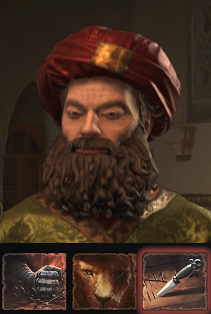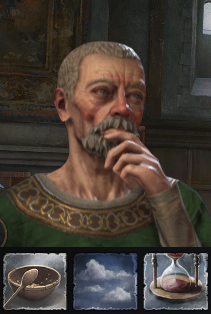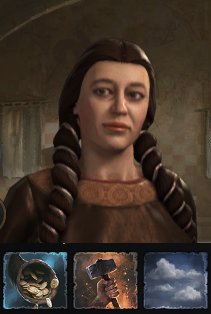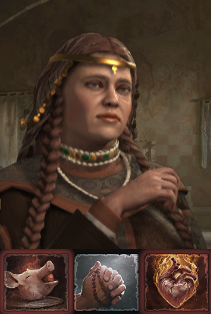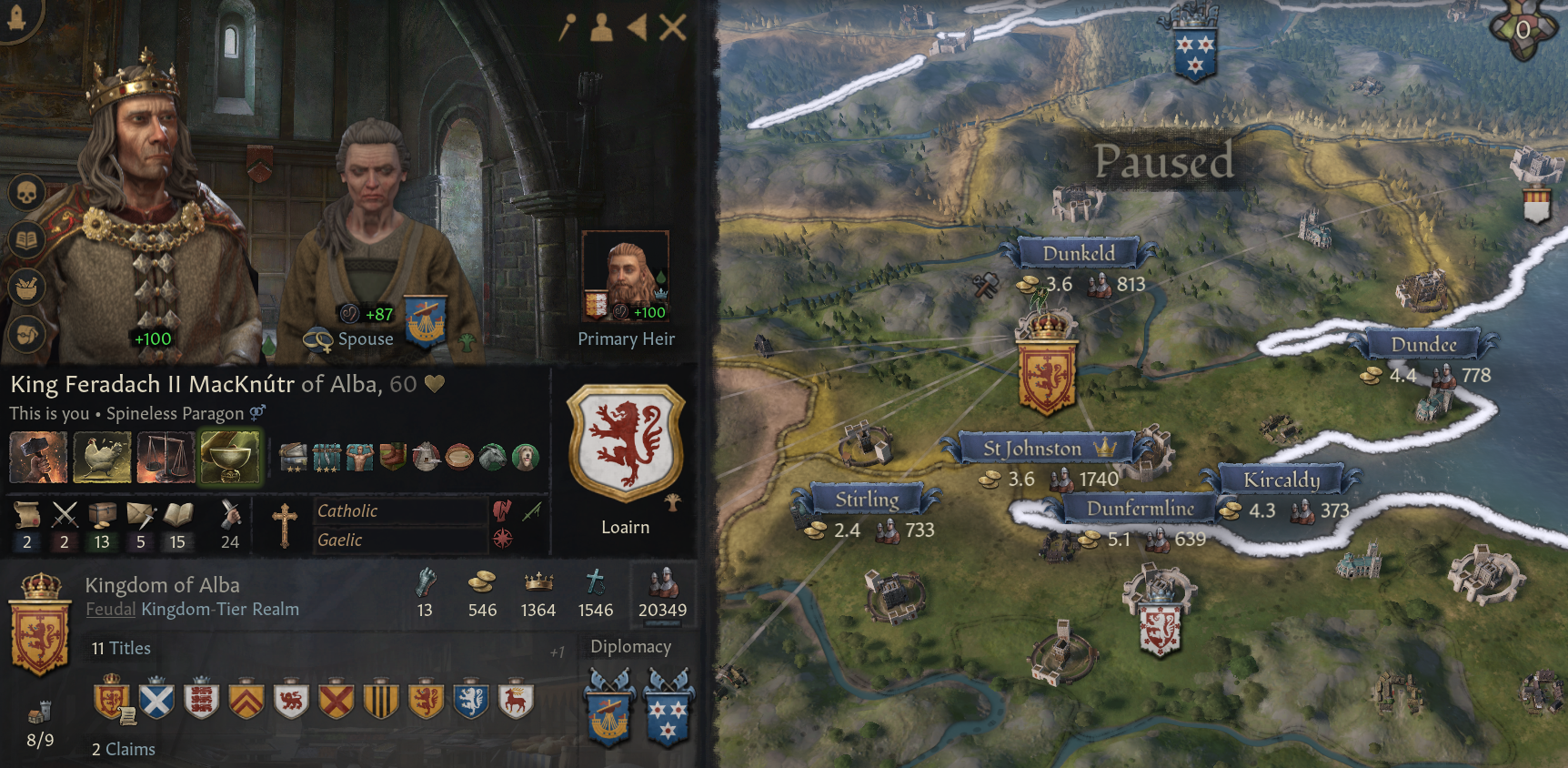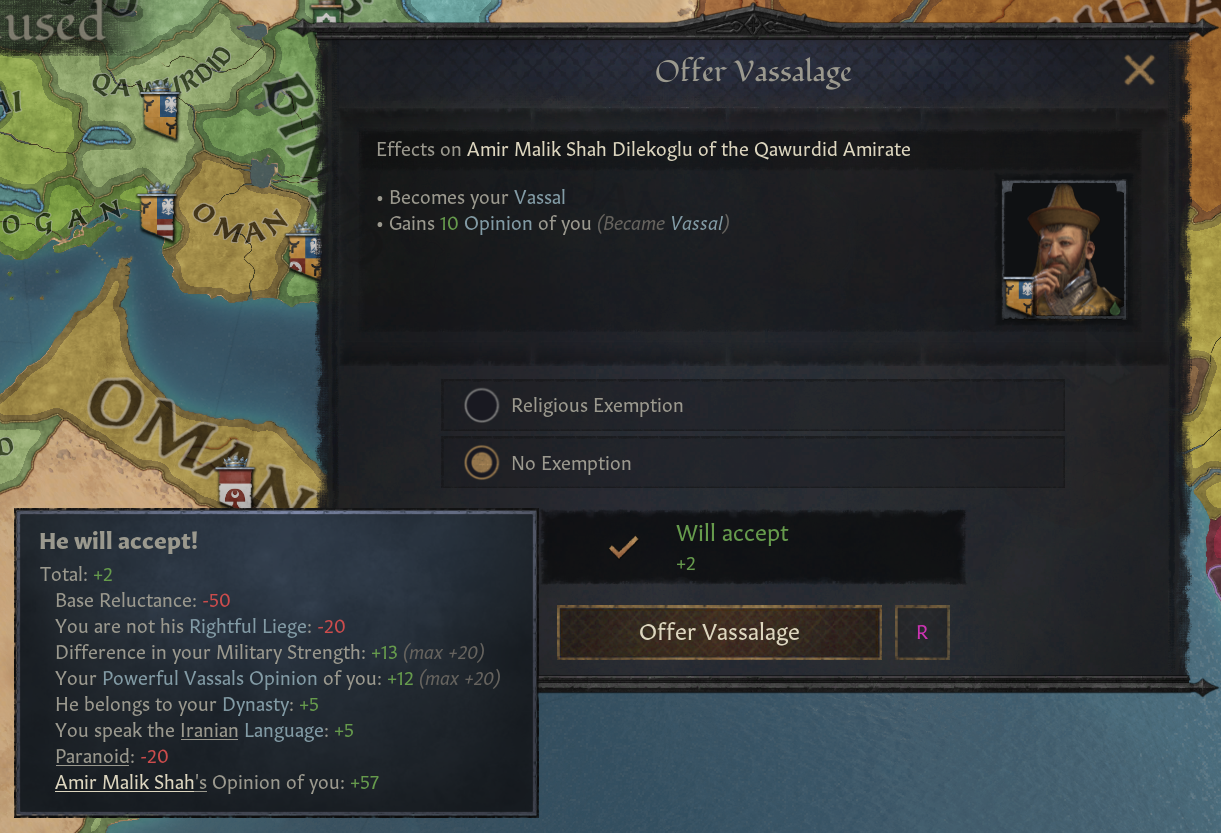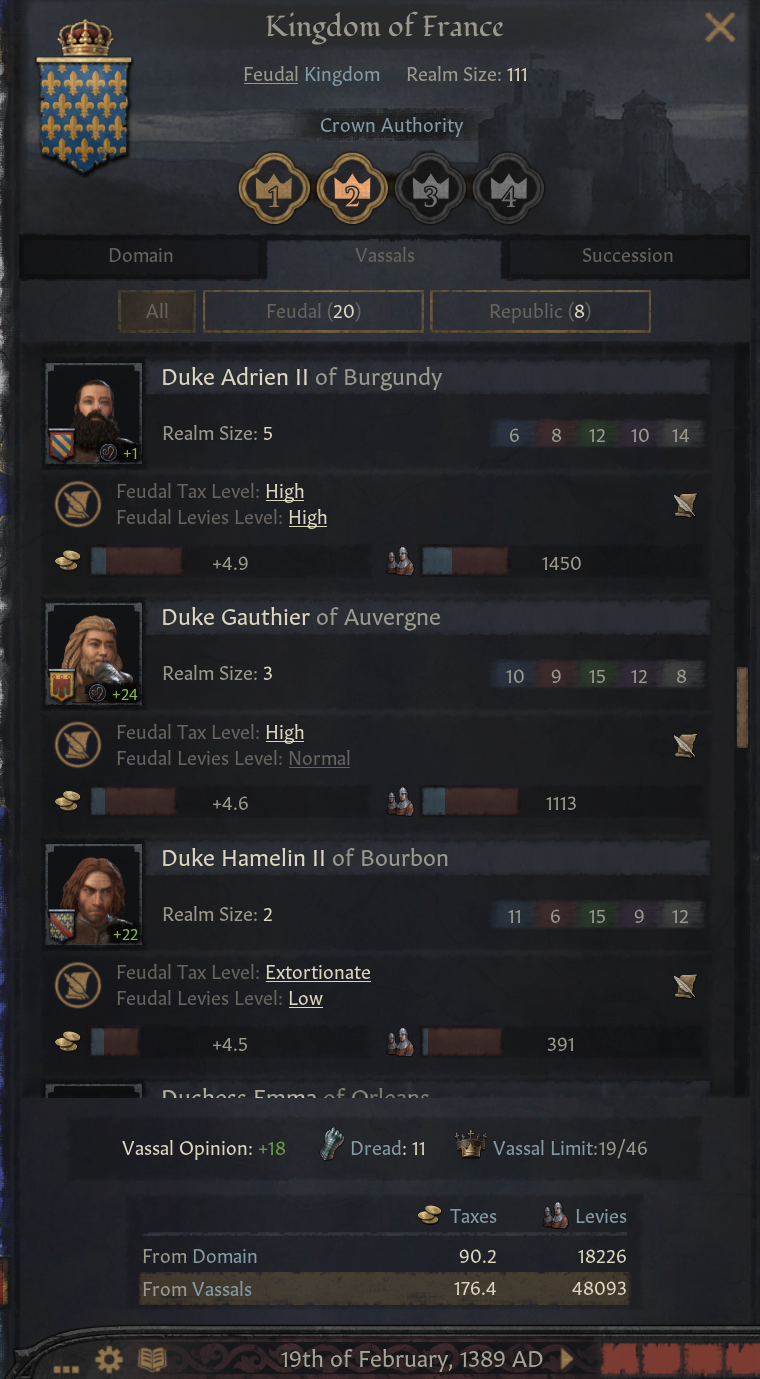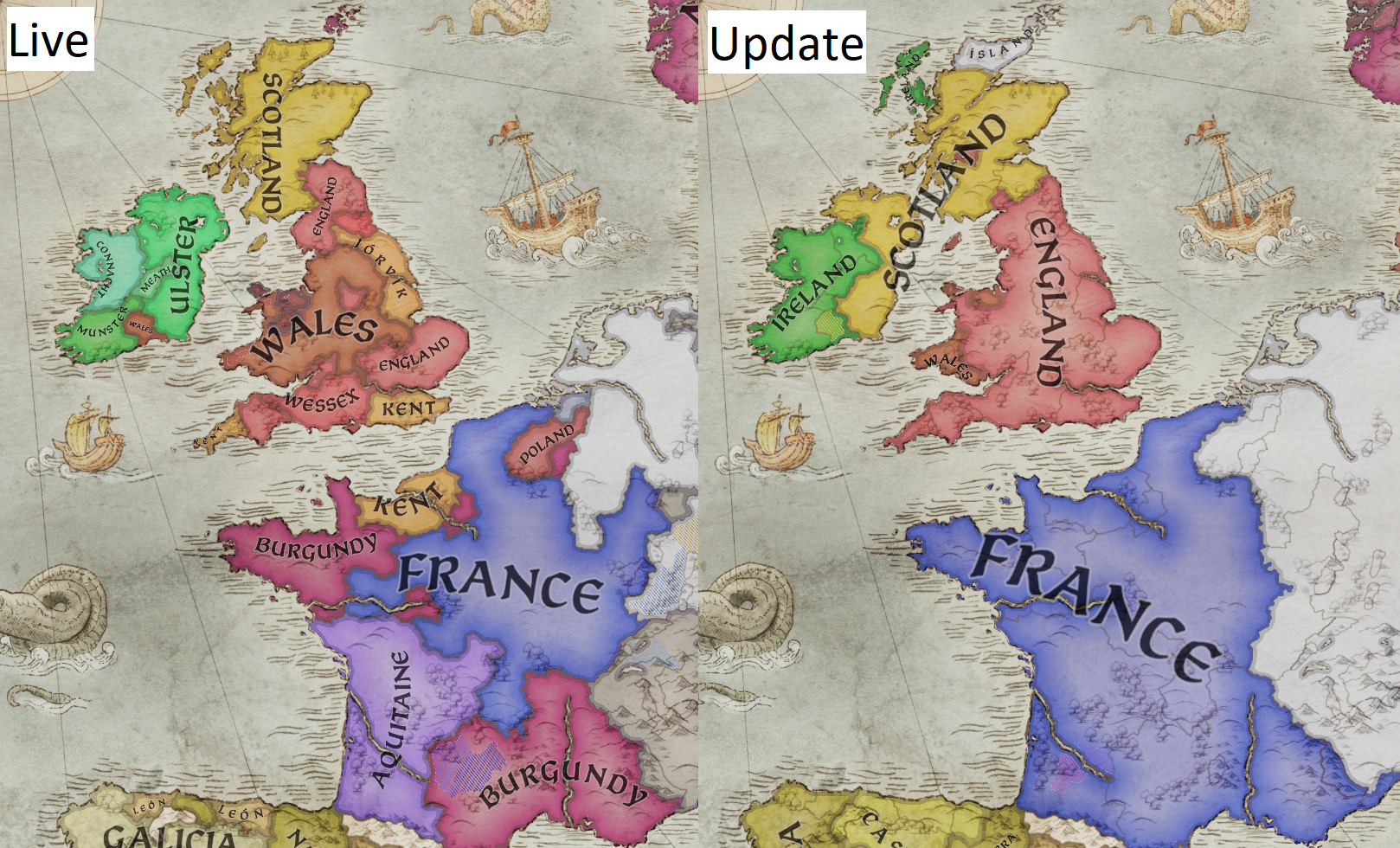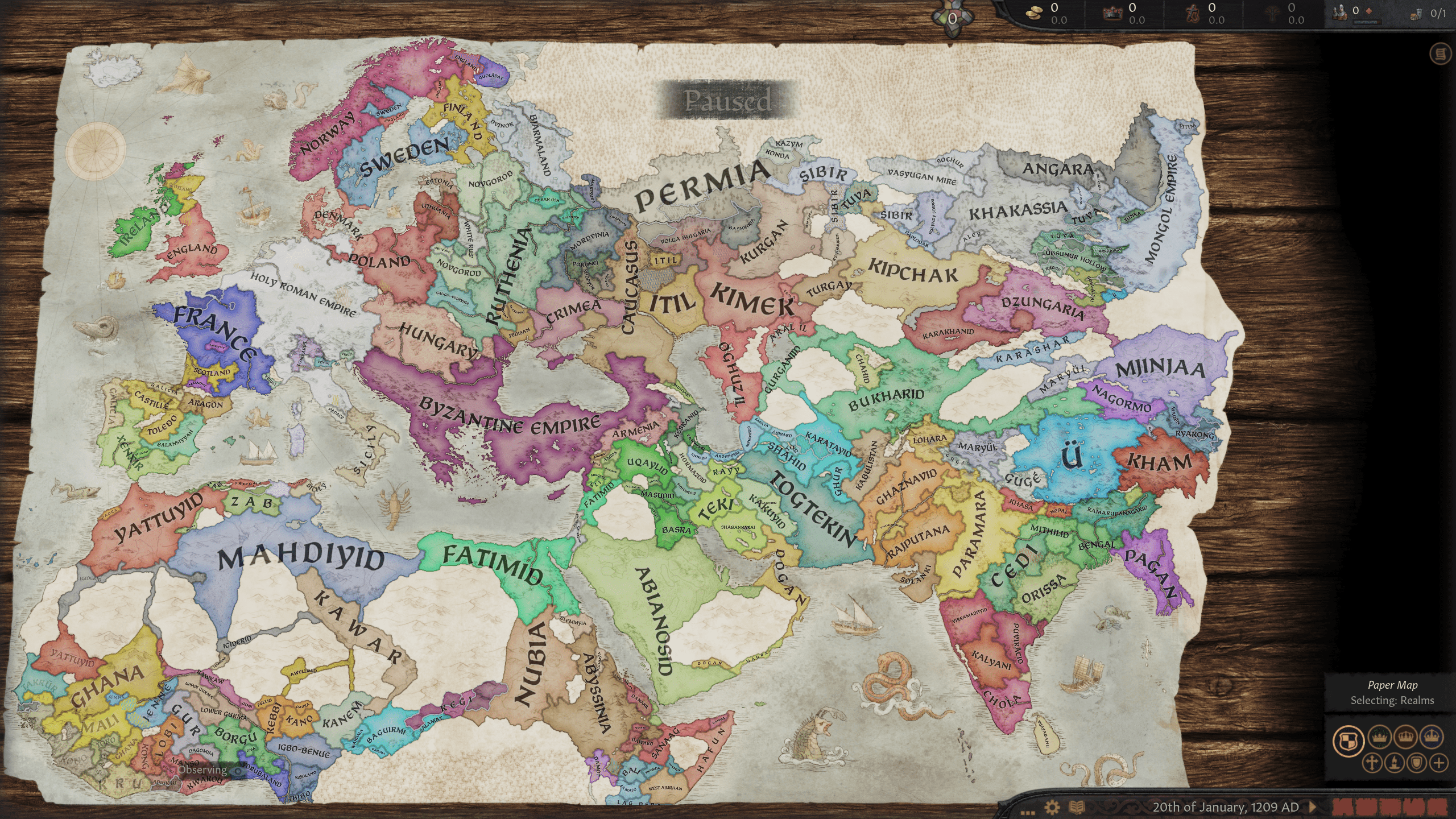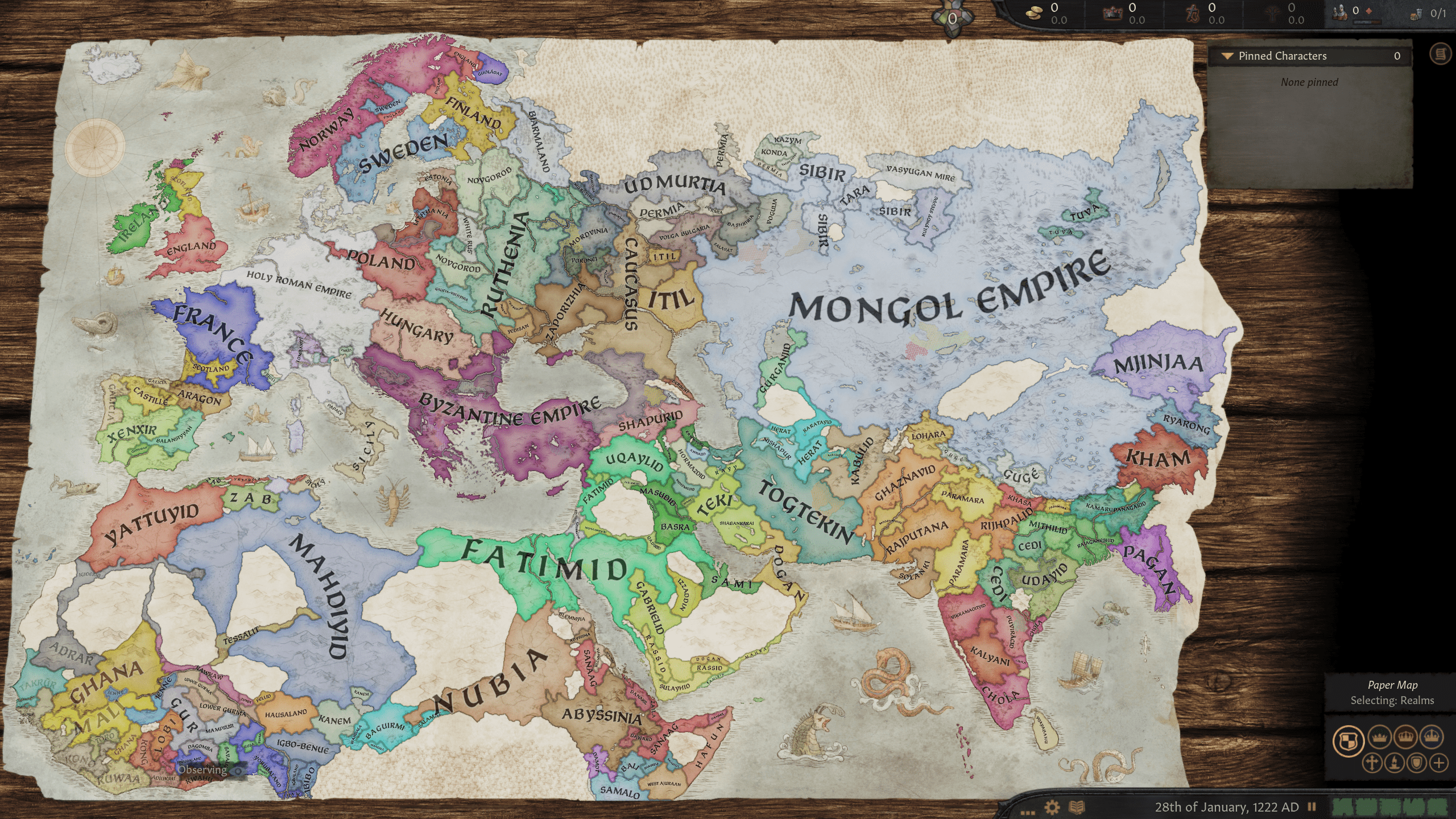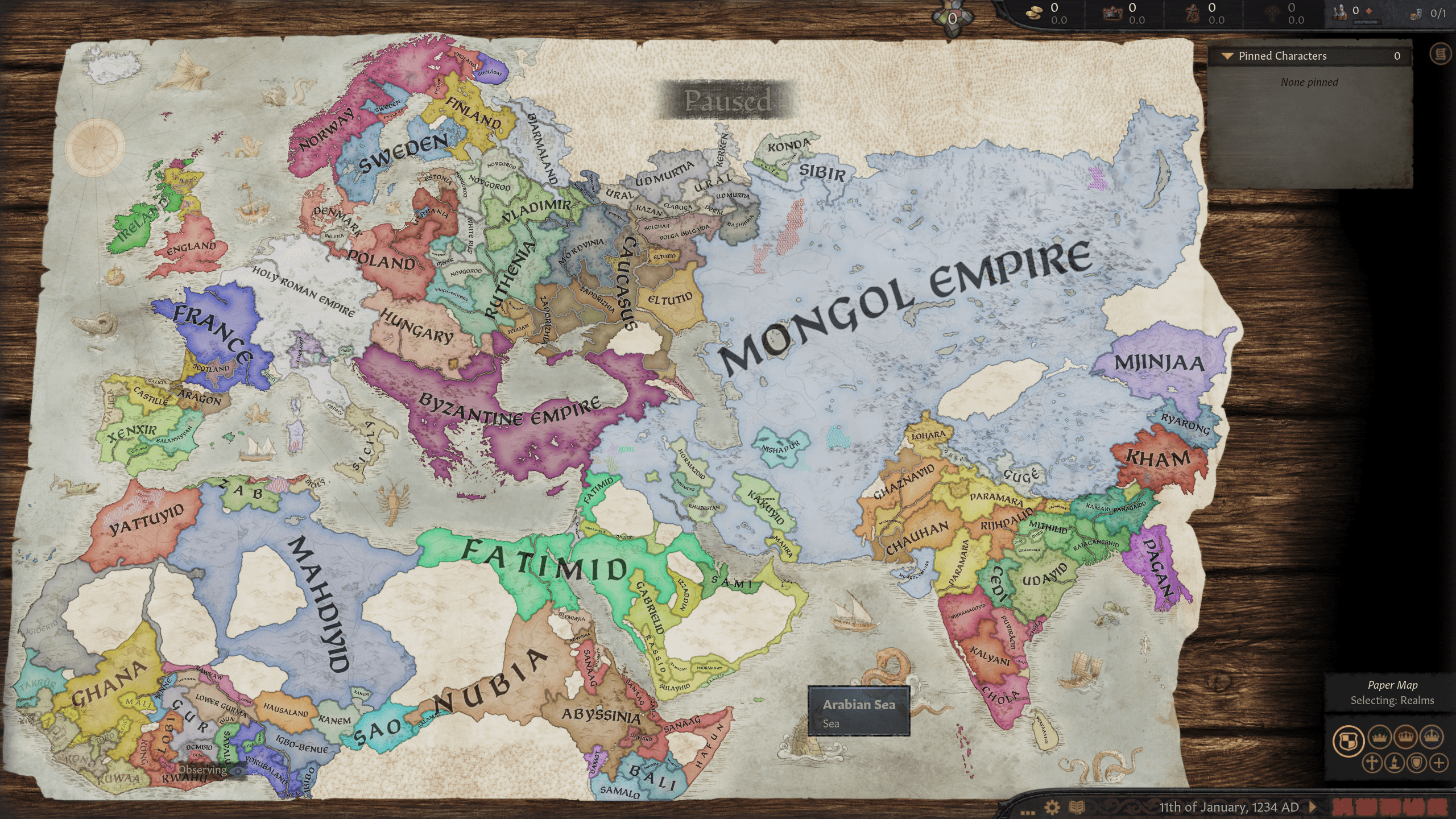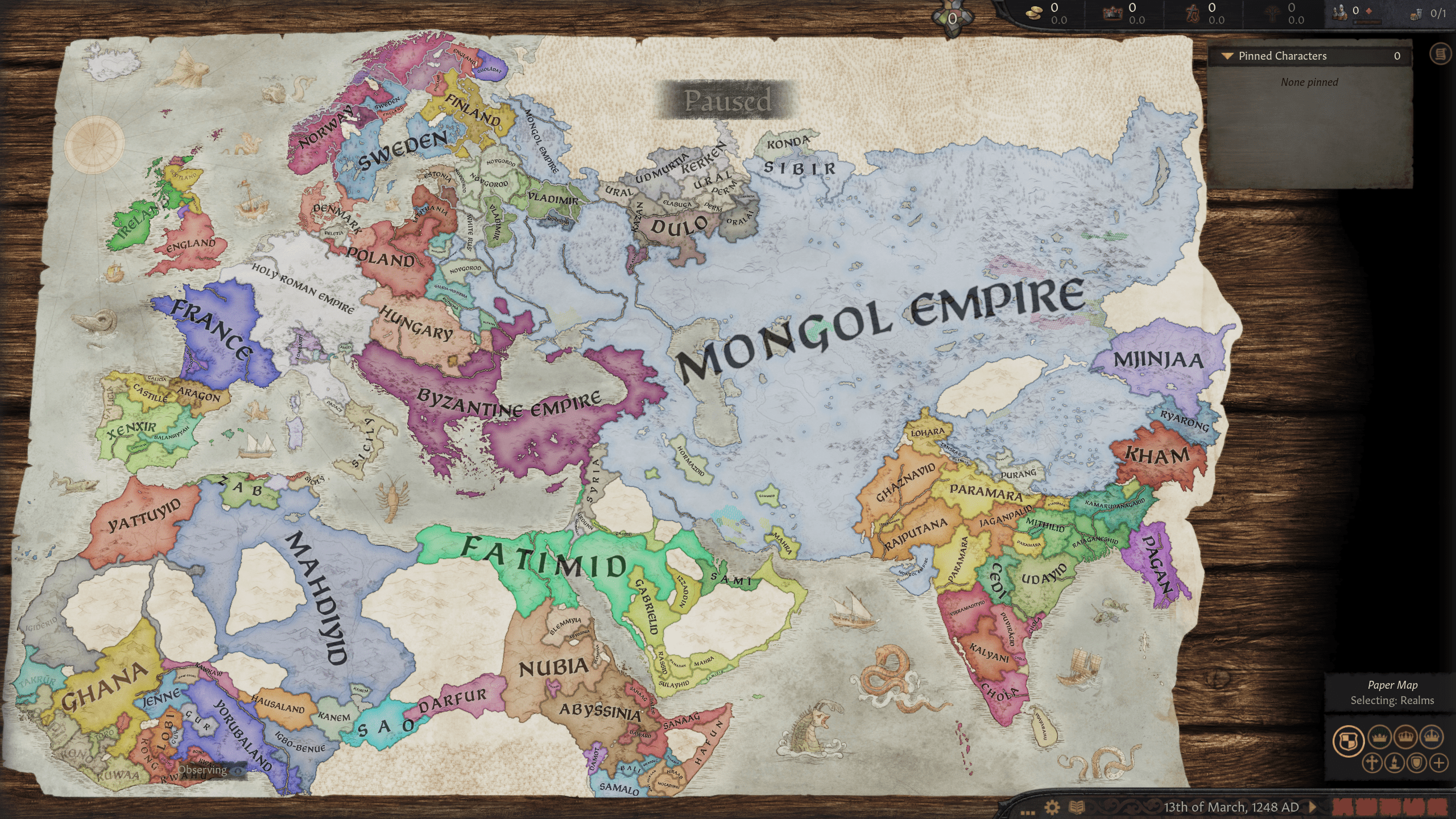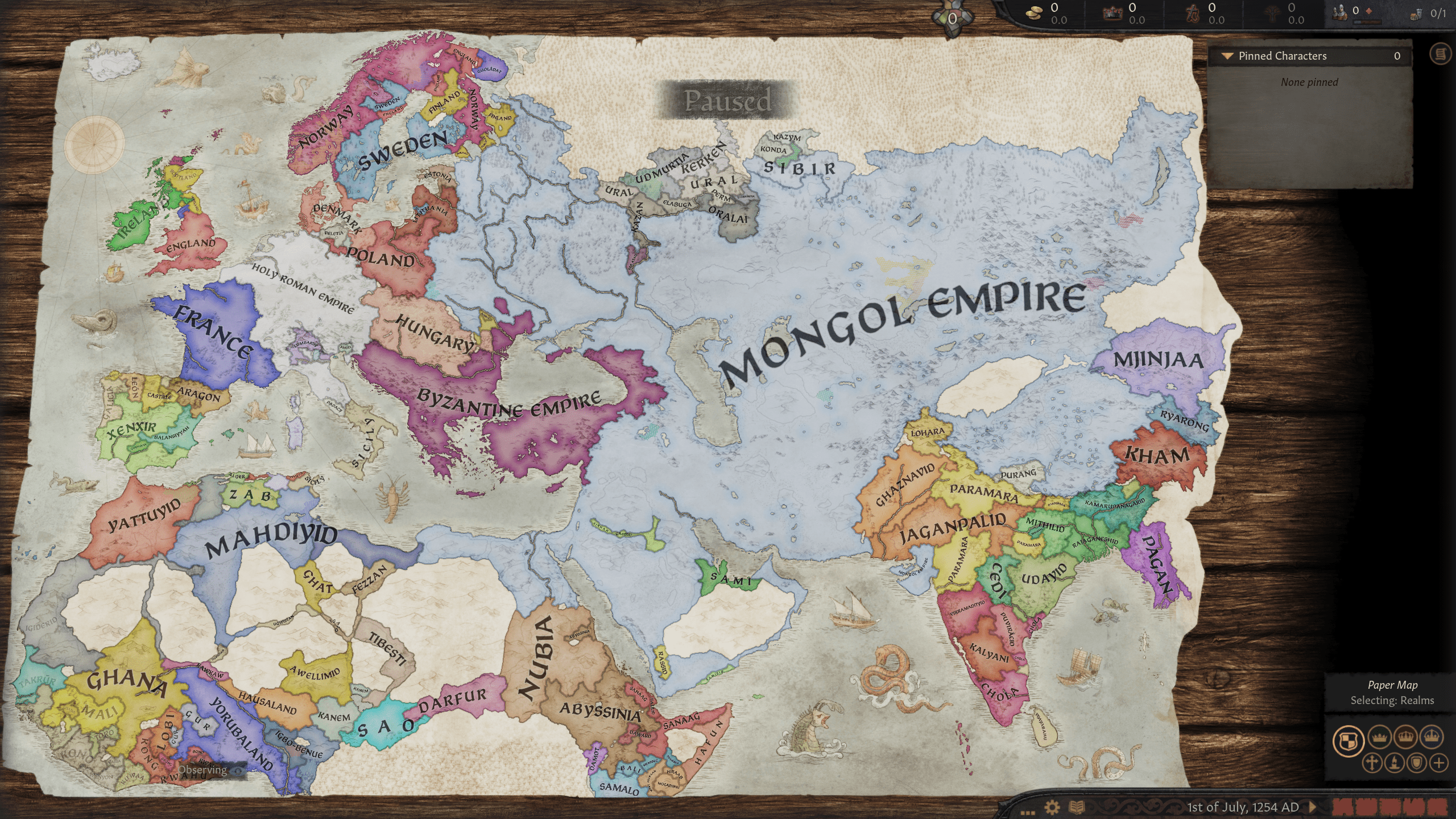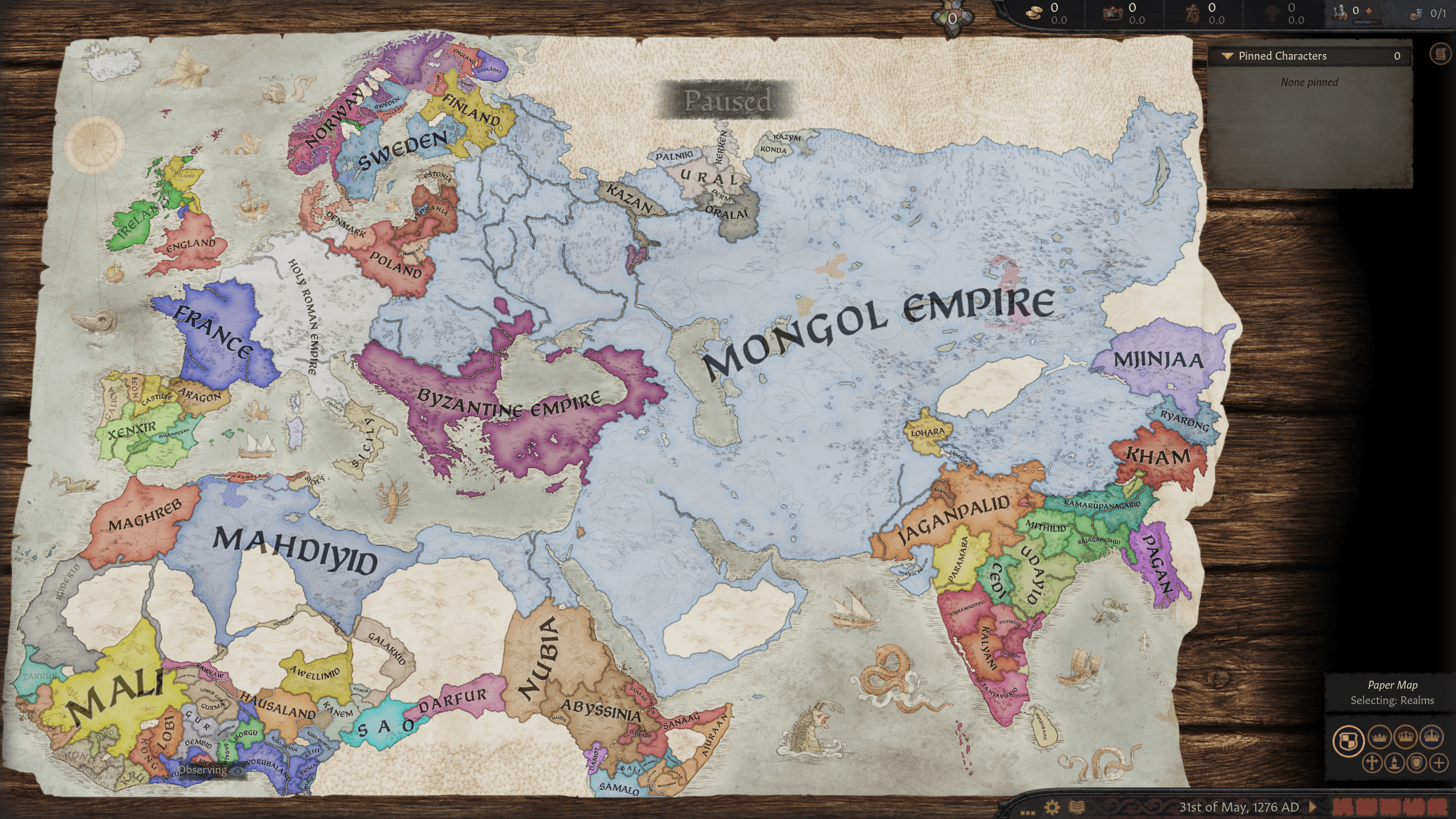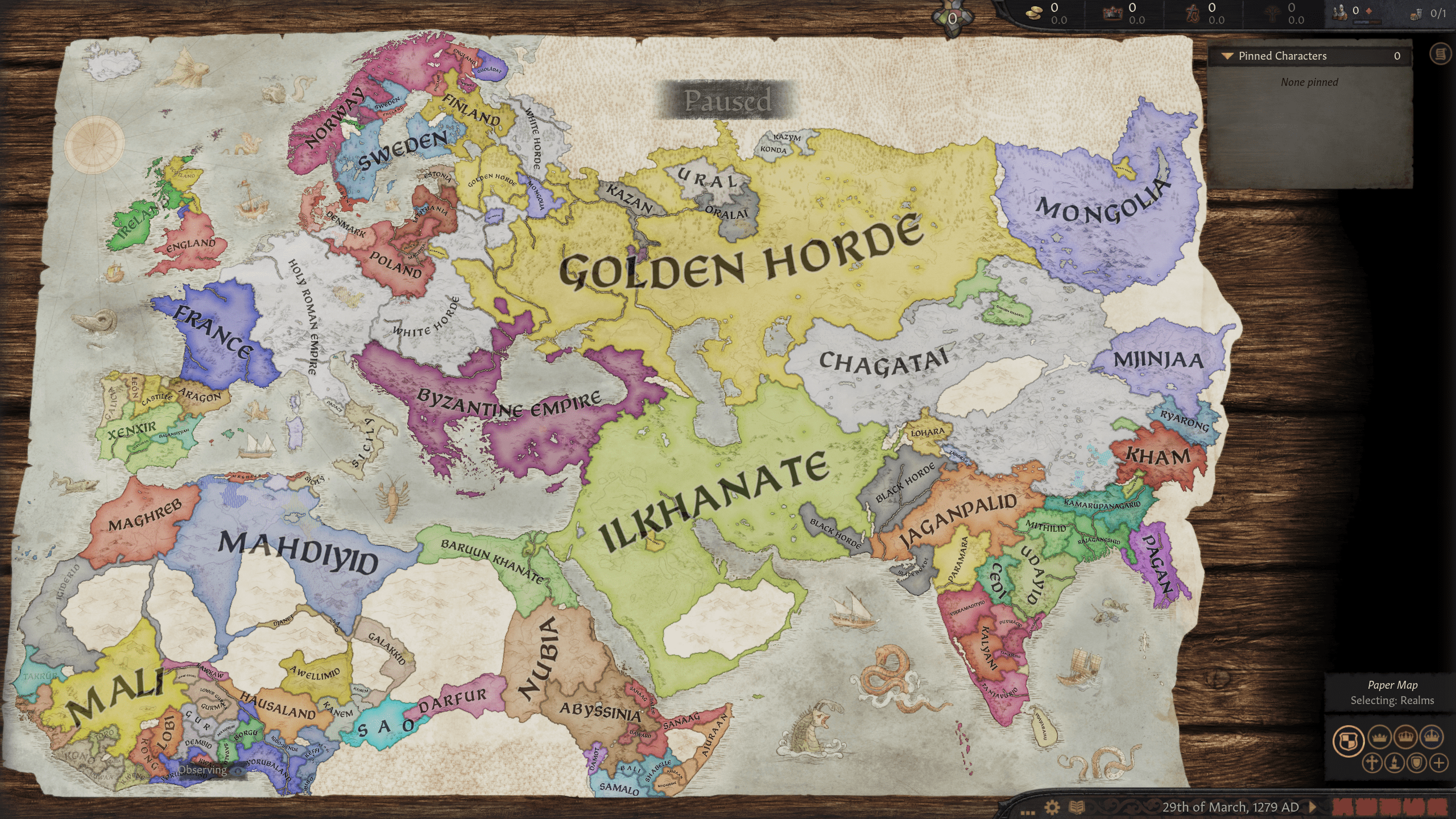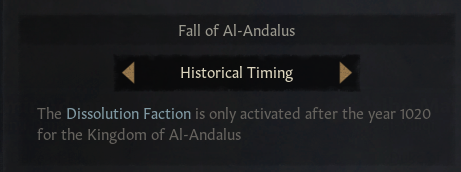
Aug 30, 2022
Crusader Kings III - PDX-Trinexx
Hello and welcome to another Development Diary for Crusader Kings 3. Today I will talk a bit about the free 1.7 “Bastion” update and what new things it will bring to the game. Today we will not be talking about [REDACTED] which will be released together with the update.
The changes to Factions and AI have previously been covered in posts by @Servancour and @rageair and I will therefore not mention them again, but I recommend checking out their diaries if you missed them before: https://pdxint.at/3PJSwhA and Let's Talk Populist Factions
► Read our Dev Diary #105: 1.7 "Bastion" Update

While the characters often get up to quite memorable things in our games there has up to now not been a way to keep track of exactly what, when and with whom each character has had a particular experience. What we have done in the new update in order to show more clearly how alive the game world is, is to introduce memories to characters. Characters will remember things that happened to them, from important things like the births of their children, important battles, deaths of close ones, and succession, to more mundane things like the event interactions with other characters during their childhood.
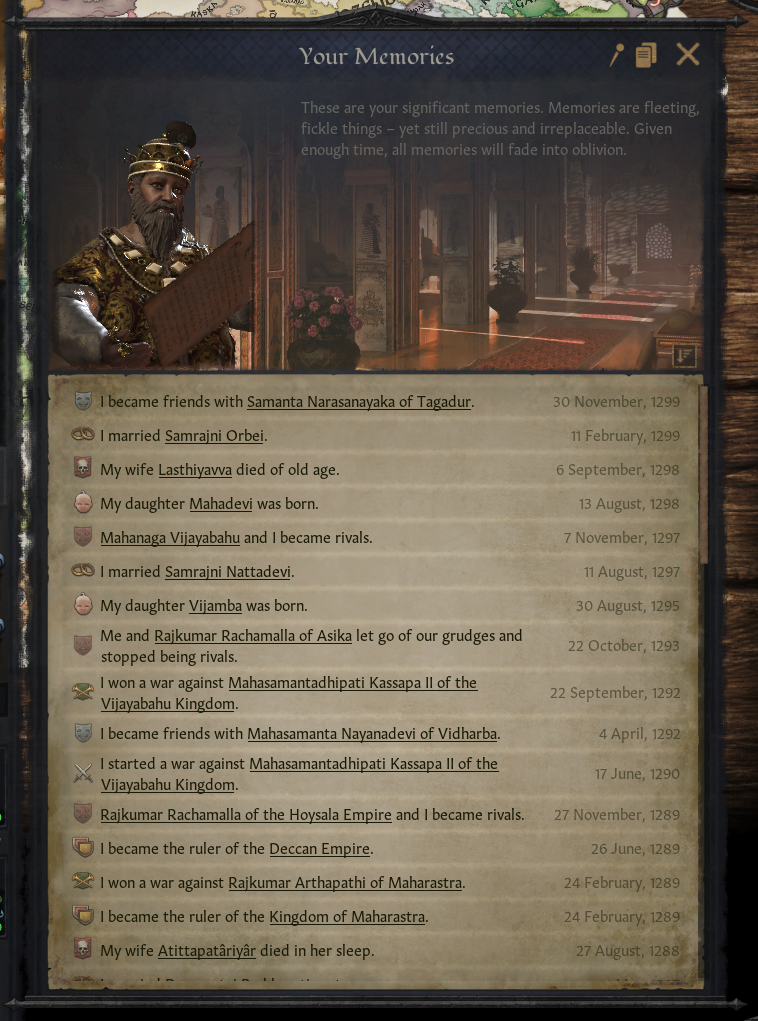
At any time you can view the memories of your character as well as non-private memories of other characters. This lets you quickly get an idea of not only what a character is like, but also how they got there. One can think of it as a feature somewhat similar to the character history that we had in EU:Rome many years ago.
One important difference to a character history though is that over time some memories will fade away, while others will remain. For player characters and characters likely to become player characters we err on the side of keeping memories longer, mostly because you are more likely to have a need of them as the game progresses.
Memories can be viewed at any time by opening the Memory Viewer from the character window, via a button in the same place as the Kill List, Inventory, and Lifestyle.
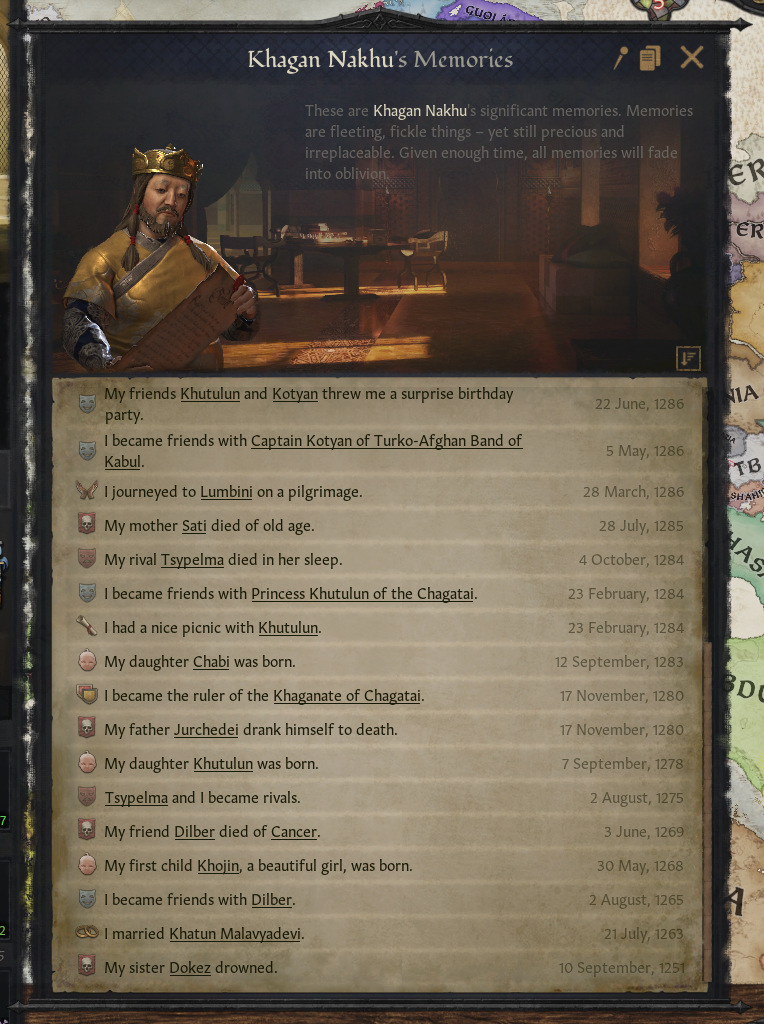
Memories are not only there as a log for the player to enjoy, however. The new system allows us to make use of memories that a character has both to trigger content and to make use of in events. This means that you may now find memories used in content that previously had to be vague, an assassin might now actually cite a specific slight you committed against their employer, for instance.
What this also means is that we are now able to create new content that is based entirely on your character having a certain type of memory or sharing a memory with another character.
Last of all I should mention that it is possible to export the memories of a character to clipboard in order to share it outside of the game for those that want others to know of their character’s exploits.
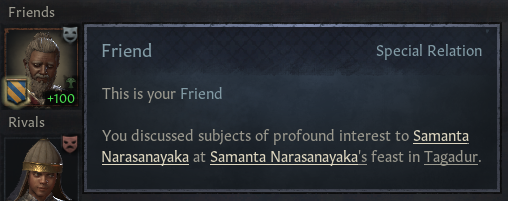
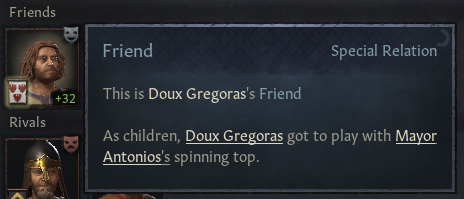
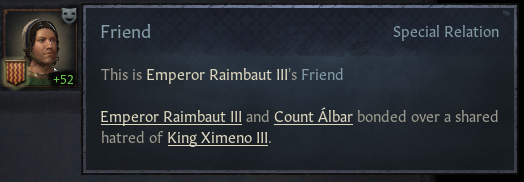
Another addition coming with this update to further open up how things are connected in the game’s world is that we have wanted to make it clearer which characters are your friends, enemies, nemeses, etc, as well as clearer why a character has a special relationship with that particular character. This is accomplished by a new set of icons in the interface to highlight relationships.
Additionally whenever a relationship is formed the game notification will now not only say that it happened but also why it happened. The reasons for relationships will then always be visible in its tooltip: clearly telling you how they became friends, lovers, best friends, nemeses, etc. In cases where a more advanced relation (such as best friend or nemesis) exists we will show the reason for both the basic relationship and the more advanced one, so a best friend will keep track of both how you originally became friends and when you actually became best friends.
Together with character memories this should now make it more clear what has led you to the current point in your game, a small change that brings a surprising amount of context, highlighting parts of the interpersonal simulation that can right now be a bit hidden away.
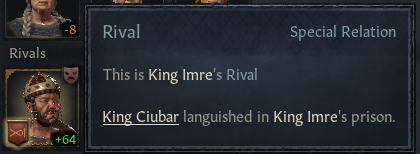
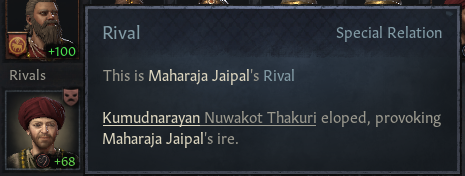
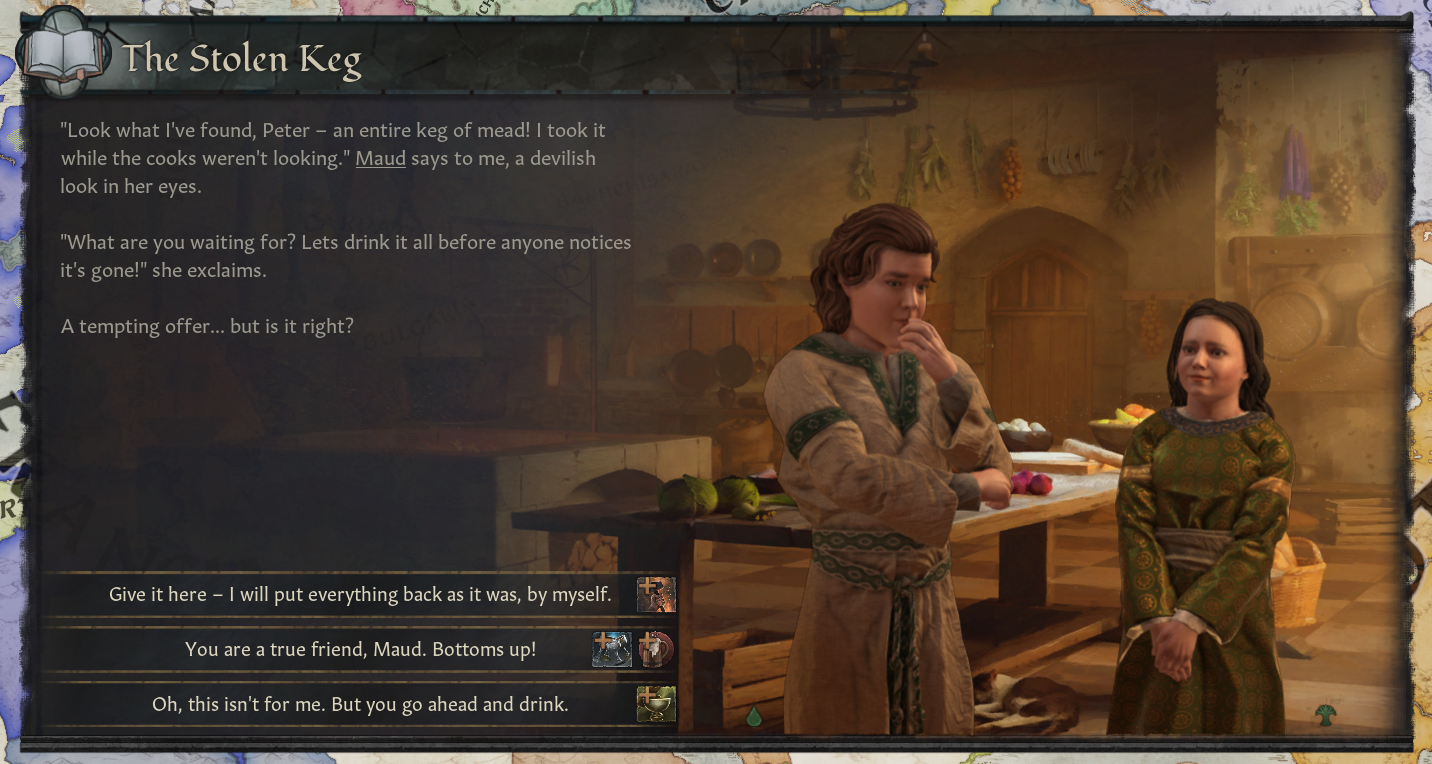
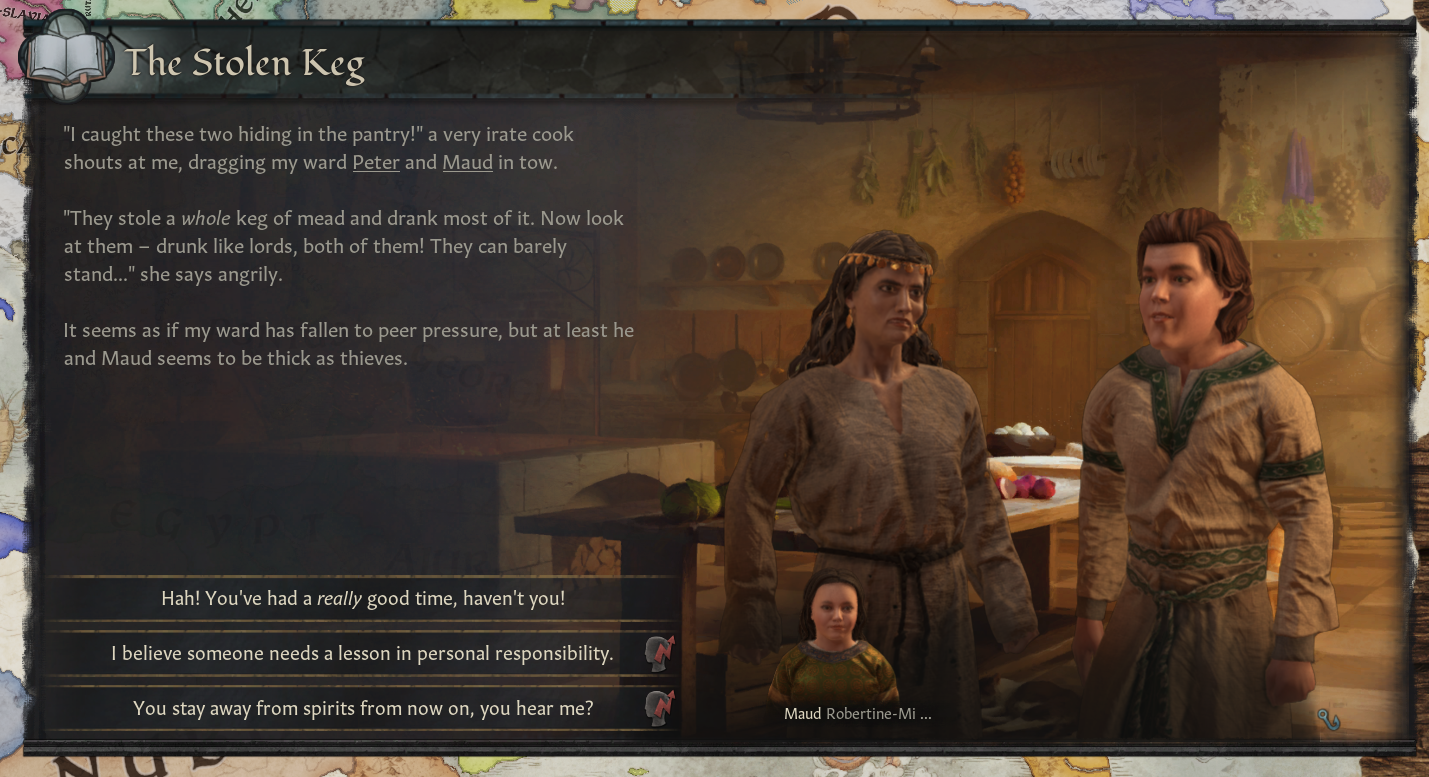
Another thing that we wanted to revisit in order to improve on how we deal with characters in the game world is the revamping of all existing childhood personality events as well as the addition of 12 new ones. This will significantly alter what personality trait combinations are likely to appear and will open up some combinations that were previously impossible simply due to how the old events for growing up worked.
The ambition apart from adding more content to the childhood period is to have the choices you make as a guardian be more interesting, avoiding any easy best choices in any single childhood event.
The new trait combinations that will be pitted against each other are:
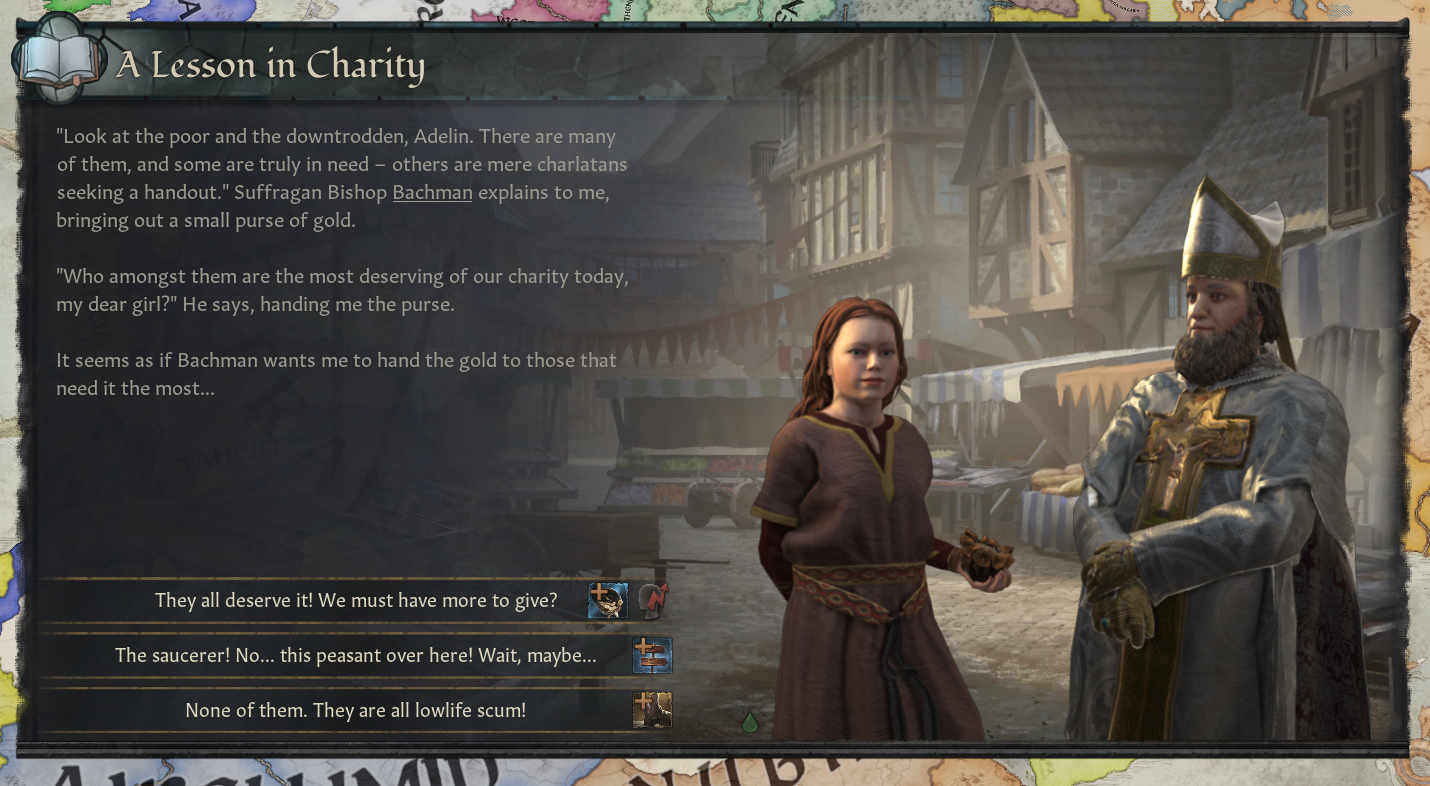
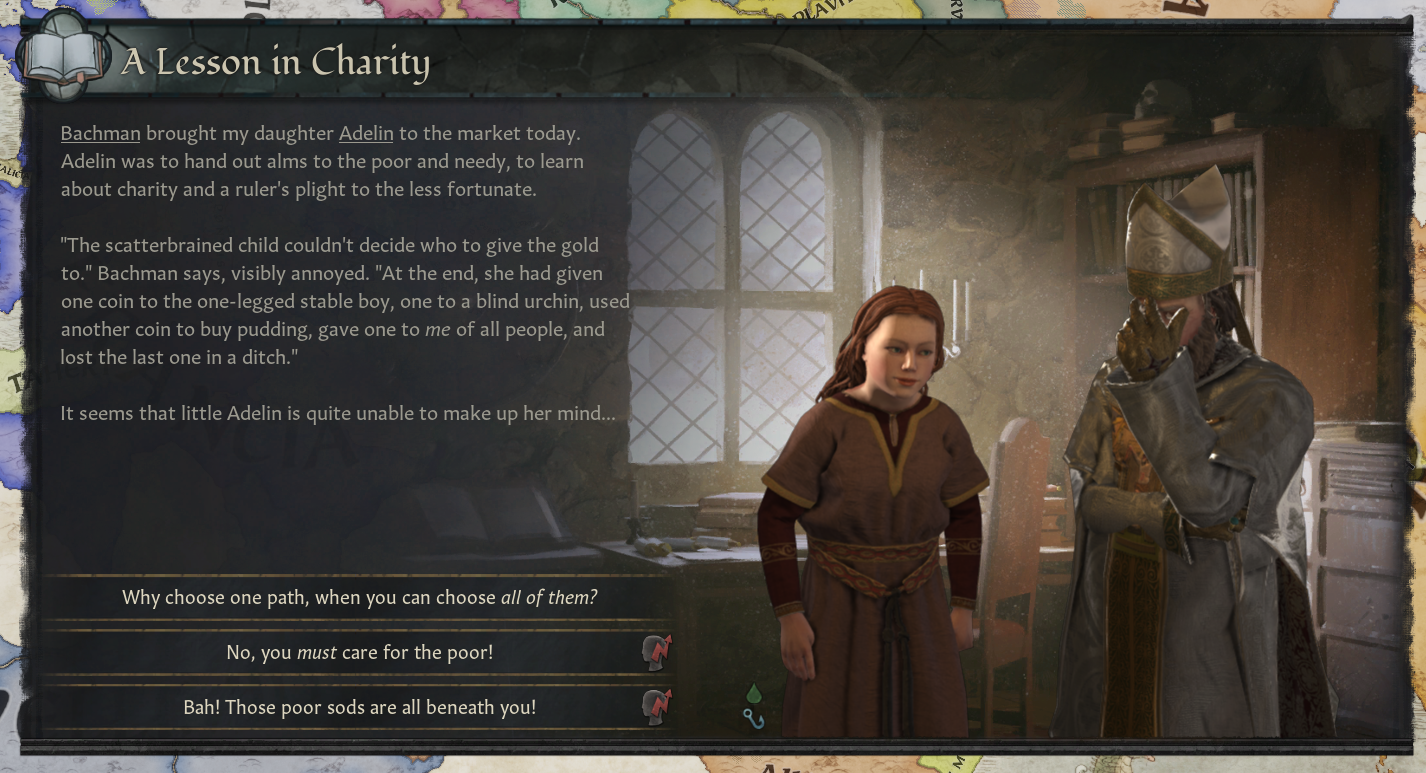
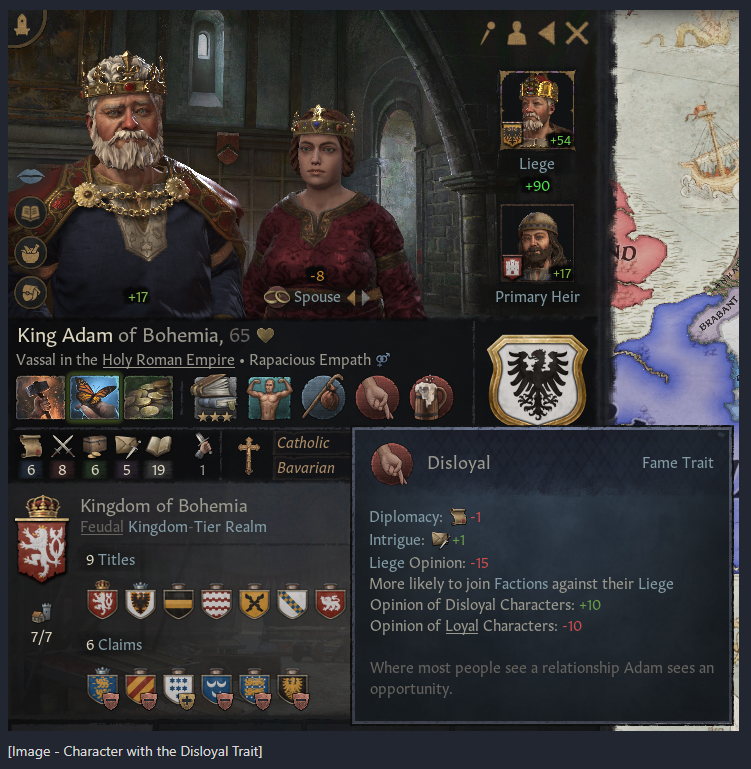
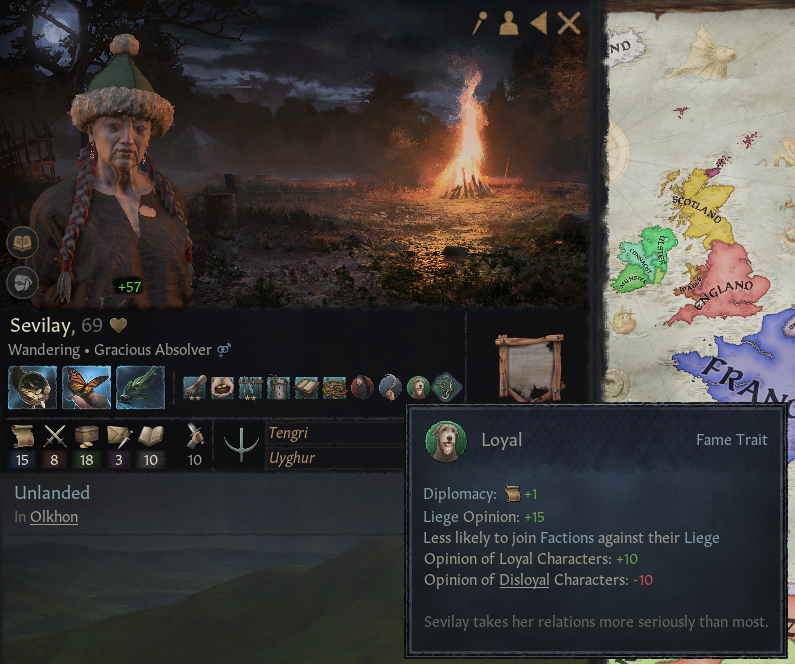
Last but not least for today is the addition of two new traits with the upcoming update. Through their actions (or indeed as they are subjected to the actions of others) characters can now gain traits for having loyal or disloyal personalities, which among other things will impact how likely they are to cheat on their spouse, join factions or plot against their liege. The traits are also integrated as sins/virtues and can be more valued or common depending on cultural traditions.
That was all for today. The new update will also bring new bug fixes, event pictures, and things that I have not brought up today but this was a sneak peak of what is to come.
Next week @PDS_Noodle will be talking some more about what the future will bring.
The changes to Factions and AI have previously been covered in posts by @Servancour and @rageair and I will therefore not mention them again, but I recommend checking out their diaries if you missed them before: https://pdxint.at/3PJSwhA and Let's Talk Populist Factions
► Read our Dev Diary #105: 1.7 "Bastion" Update

Character Memories
While the characters often get up to quite memorable things in our games there has up to now not been a way to keep track of exactly what, when and with whom each character has had a particular experience. What we have done in the new update in order to show more clearly how alive the game world is, is to introduce memories to characters. Characters will remember things that happened to them, from important things like the births of their children, important battles, deaths of close ones, and succession, to more mundane things like the event interactions with other characters during their childhood.

At any time you can view the memories of your character as well as non-private memories of other characters. This lets you quickly get an idea of not only what a character is like, but also how they got there. One can think of it as a feature somewhat similar to the character history that we had in EU:Rome many years ago.
One important difference to a character history though is that over time some memories will fade away, while others will remain. For player characters and characters likely to become player characters we err on the side of keeping memories longer, mostly because you are more likely to have a need of them as the game progresses.
Memories can be viewed at any time by opening the Memory Viewer from the character window, via a button in the same place as the Kill List, Inventory, and Lifestyle.

Memories are not only there as a log for the player to enjoy, however. The new system allows us to make use of memories that a character has both to trigger content and to make use of in events. This means that you may now find memories used in content that previously had to be vague, an assassin might now actually cite a specific slight you committed against their employer, for instance.
What this also means is that we are now able to create new content that is based entirely on your character having a certain type of memory or sharing a memory with another character.
Last of all I should mention that it is possible to export the memories of a character to clipboard in order to share it outside of the game for those that want others to know of their character’s exploits.
Relationship Reasons



Another addition coming with this update to further open up how things are connected in the game’s world is that we have wanted to make it clearer which characters are your friends, enemies, nemeses, etc, as well as clearer why a character has a special relationship with that particular character. This is accomplished by a new set of icons in the interface to highlight relationships.
Additionally whenever a relationship is formed the game notification will now not only say that it happened but also why it happened. The reasons for relationships will then always be visible in its tooltip: clearly telling you how they became friends, lovers, best friends, nemeses, etc. In cases where a more advanced relation (such as best friend or nemesis) exists we will show the reason for both the basic relationship and the more advanced one, so a best friend will keep track of both how you originally became friends and when you actually became best friends.
Together with character memories this should now make it more clear what has led you to the current point in your game, a small change that brings a surprising amount of context, highlighting parts of the interpersonal simulation that can right now be a bit hidden away.


Revamped Childhood Events


Another thing that we wanted to revisit in order to improve on how we deal with characters in the game world is the revamping of all existing childhood personality events as well as the addition of 12 new ones. This will significantly alter what personality trait combinations are likely to appear and will open up some combinations that were previously impossible simply due to how the old events for growing up worked.
The ambition apart from adding more content to the childhood period is to have the choices you make as a guardian be more interesting, avoiding any easy best choices in any single childhood event.
The new trait combinations that will be pitted against each other are:
- diligent, gregarious, temperate
- zealous, ambitious, sadistic
- shy, paranoid, craven
- lazy, gluttonous, compassionate
- lustful, chaste
- just, greedy, callous
- humble, cynical, content
- vengeful, deceitful, calm
- generous, fickle, arrogant
- forgiving, trusting, patient
- honest, arbitrary, impatient
- brave, stubborn, wrathful


The Loyal and Disloyal Traits


Last but not least for today is the addition of two new traits with the upcoming update. Through their actions (or indeed as they are subjected to the actions of others) characters can now gain traits for having loyal or disloyal personalities, which among other things will impact how likely they are to cheat on their spouse, join factions or plot against their liege. The traits are also integrated as sins/virtues and can be more valued or common depending on cultural traditions.
That was all for today. The new update will also bring new bug fixes, event pictures, and things that I have not brought up today but this was a sneak peak of what is to come.
Next week @PDS_Noodle will be talking some more about what the future will bring.




